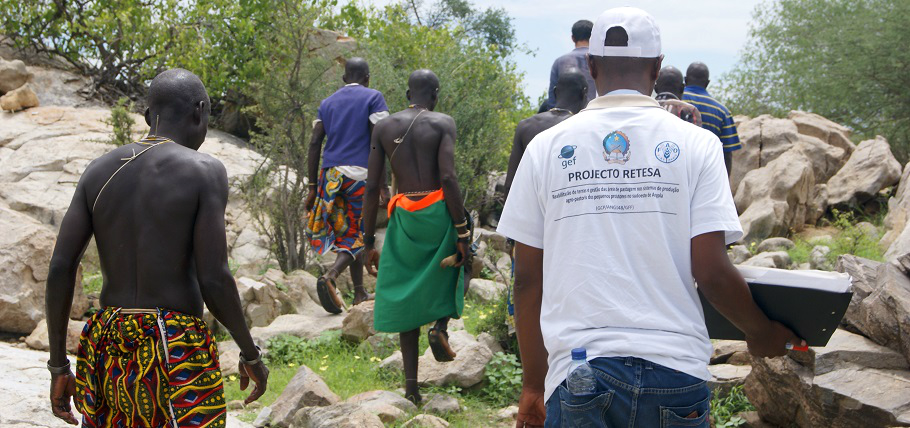Angola
In Angola, SHARP is embedded into the GEF-funded projects:
The project addresses the need for a more integrated approach to work against land degradation processes, taking into account the complex interactions between agricultural and pastoral production in the targeted area. This will be achieved by focusing on key productive landscapes such as the areas commonly shared by agriculturalists, agro-pastoralists and transhumant herders in a context of increasing interruptions in the traditional herd migrations patterns, routes, transhumance dates and arrangements. The project approach will be mainly based on participation of indigenous communities and their knowledge of local best practices to reverse land degradation processes.
The present project aims to strengthen the climate resilience of the agropastoral production systems in the key vulnerable areas of Angola of the Central Plateau (Bie, Huambo and Malanje). This includes mainstreaming Climate Change Adaptation into agricultural and environmental sector policies, programmes and practices, building capacity and promoting CCA through soil fertility and sustainable land management (SLM) practices by using the Farmers Field School (FFS) approach.
- Disaster risk reduction/management to support agro-pastoral communities affected by the recurrent droughts and other natural disasters in Southern Angola and Northern Namibia (OSRO/RAF/404/USA)
The project has the objective of strengthening food security and DRR/M and increasing the resilience of agro-pastoral livelihoods by increasing capacity to manage risks related to natural disasters at the level of communities and local institutions in Southern Angola (Cunene, Namibe and part of Huila provinces) and Northern Namibia.
Training on the use of SHARP to assess climate resilience across agropastoral communities in the country was delivered between March and April 2015. Following this, data collection across a number of provinces has started, and preliminary analysis of information collected has been used to inform the planning of activities by the local team. A follow up training was organized in February 2016 and provided the opportunity to further build the capacity of the local team in the collection of data through the SHARP tablet application in the field.

